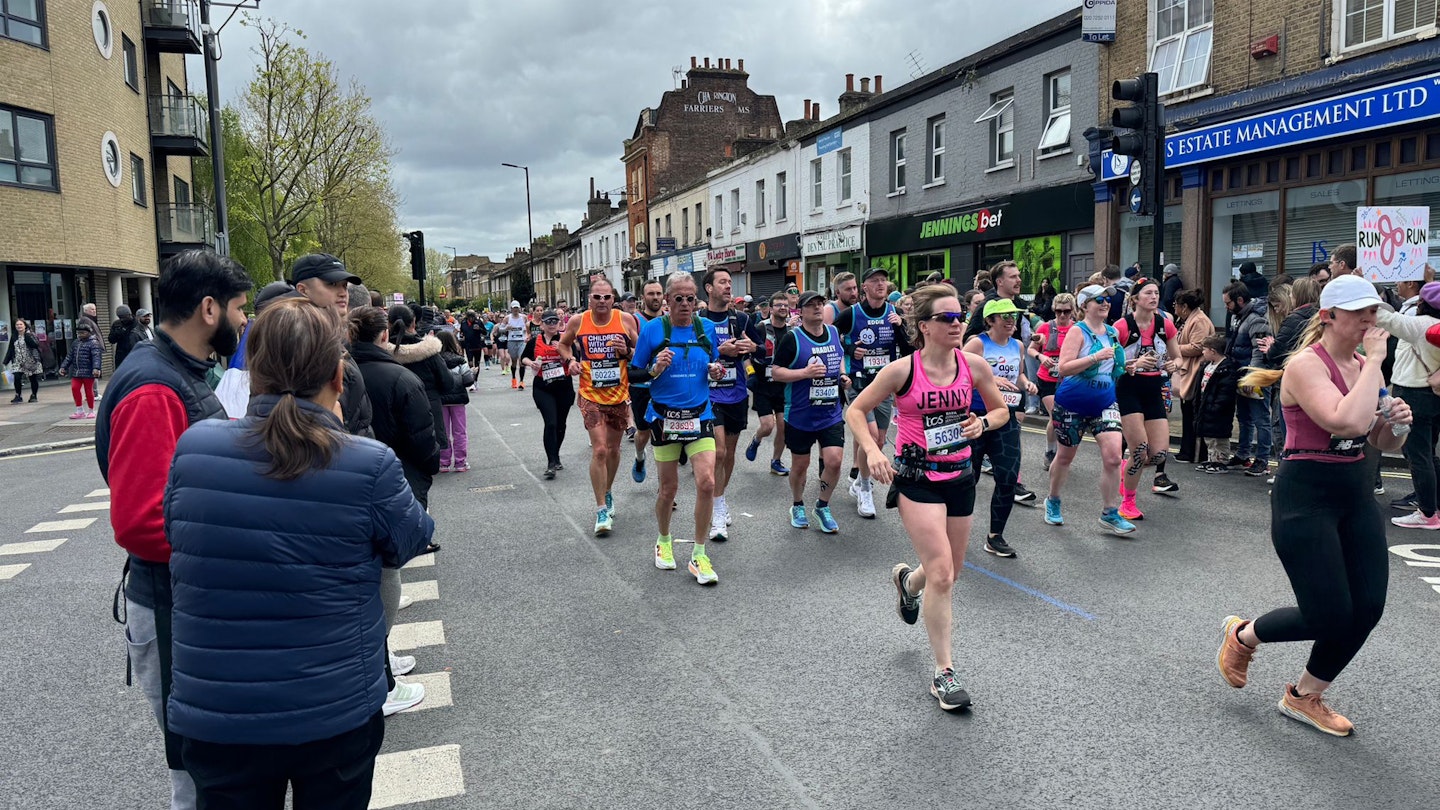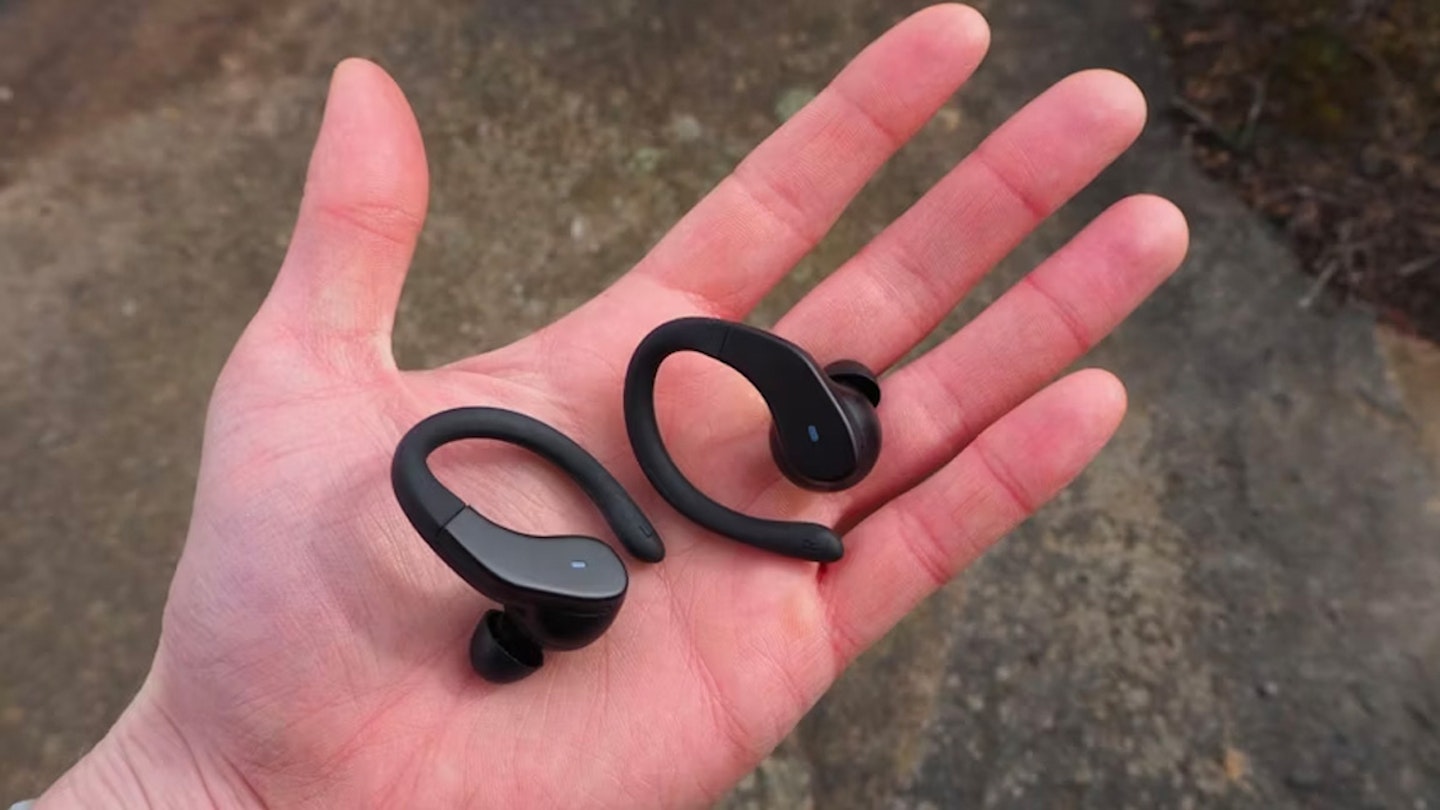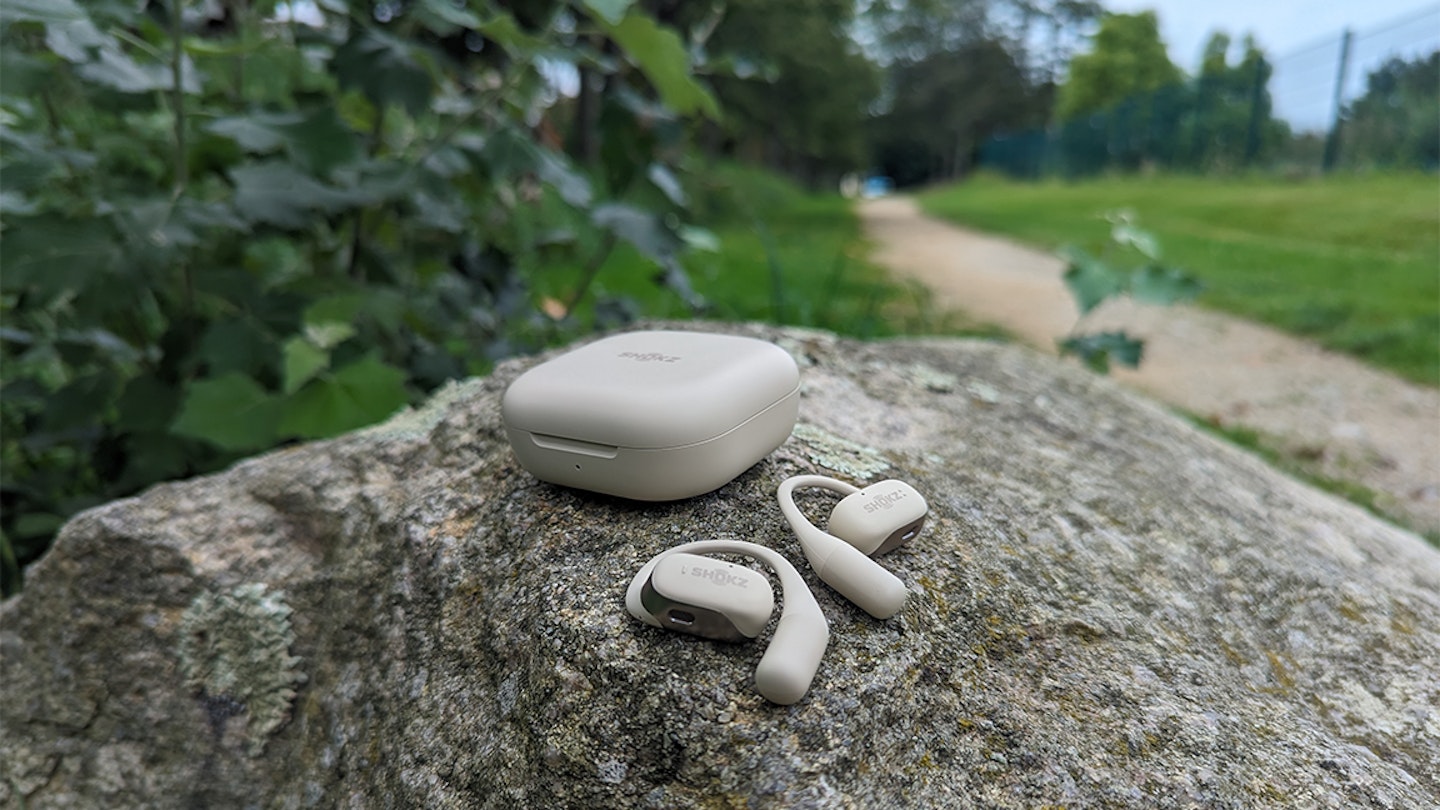Music and exercise have long moved together, hand-in-hand; just imagine a silent spin class or running along a beach without the soundtrack to Chariots of Fire playing in your head. Races haven’t been slow to get in on the act, realising there’s nothing like a good upbeat tune to get you going.
The London Marathon this spring, for instance, was a cacophony of noise, from steel drum bands to charity stations blaring out Dua Lipa; it builds an incredible and energetic atmosphere at big events, inspiring runners to push themselves and – mostly – keep smiling. Even a Lakeland Trail race where you are there to battle nature and its accompanying hills will feature a fabulous group of drummers on the start line intent on getting you in the mood for the task ahead.

Of course the overriding question in all of this is: does it all actually work? Can throwing in a pair of running earphones listening to your favourite country and western artist really make a blind bit of difference to your performance? The simple answer is yes, even to the extent that back in 2007 US authorities actually tried to ban runners from listening to music while racing, arguing that the feel good factor it provides would create an unfair advantage for the elite. As you can imagine, that didn’t go down too well with the masses and generally people just ignored that ruling.
Method behind the music
The scientific consensus is clear, too. A recent multi-level meta analysis by Peter C. Terry and co. into 139 studies that examined the relationship between exercise and music confirmed listening to appropriate music while running has ergogenic and psychological effects. It found that not only does it delay fatigue, but it also lessens your perception of fatigue, too. It improves your mood, increases arousal, facilitates relevant imagery and, when looking at low- to moderate-level intensity, can clearly improve endurance.
Professor John Brewer of St Mary’s, describing a study of Brunel's Dr Costas Karageorghis, told us that the prof. had developed "a theory which looks at the ‘motivational quotient’ of a song, based on intrinsic factors such as rhythm and the meaning of the lyrics for the listener, and external factors such as the age of the runner and their personal relationship with the song.

A general rule of thumb is that songs with a 4:4 rhythm, a fast tempo and inspiring lyrics will be the most motivational for running. Songs such as One Nil to the Arsenal did not do so well. However, this does vary from one person to another, with evidence to suggest that as we age, songs from our youth will be more motivating. It’s also important to use music in the right way, for example to have a calming effect at the start of a long run, rather than a motivating effect which causes a runner to set off too quickly.”
It seems to be at these lower intensities that music has its greatest effect on performance, which makes sense if you think about it anecdotally. If you’re setting off down a 20-mile trail, you need to settle into a rhythm that will keep you going for the next few hours; if you’re training hill sprints, music will have little effect on your speed. In fact, a 2013 study published in Biology of Sport concluded that listening to beats has no effect on anaerobic performance (ie racing), and certainly can’t change the body’s physiological response to extreme exercise. It doesn’t matter how motivational the lyrics are if you can’t hear them for blood pumping in your ears. Put simply a good tune can’t turn you from a 40min 10km runner to a 38min superstar, but not listening to inspiring or calming melodies could result in a 41min clocking.
The secret lies in the body’s emotional response to music. In 2015, researchers writing in Medicine & Science in Sports & Exercise specified that listening to music can enhance your enjoyment of training, which can alter your perceived level of fatigue. By doing so, it allows you to push your body beyond what your brain would normally consider its physiological limitations, and as such improves performance to new, previously unachievable heights.
Next time a big athletics event is on TV, take a look at the way athletes warm-up. Almost all include listening to music as part of their routine. Georgina Adam, one of the best young 200m runners around says: “Before each competition, I try to keep to the same routine, eating carbohydrates and protein meals. Preparing my bag, the day before and listening to my playlists that I have created which in turn motivates during my warm up sessions.” Likewise, England Commonwealth Games team member Molly Kingsbury says she “listens to a certain playlist before I compete to get in the ‘zone’ for the event.”
A word of caution
It seems clear, then, that listening to music while running can have a powerful affect on performance, particularly when that run is performed at a slow to medium pace. This is perhaps even more prevalent in a gym – running on a treadmill is tedious at the best of times, so pounding away on one without music to distract you can be downright torturous. But when you’re running outside, and particularly on trails, is wearing headphones a good idea?
In 2012, a US study found that the number of people injured or killed while wearing headphones had tripled in the past six years, with over half of them being struck by trains. Of course, not everyone out running with headphones on will experience the same fate but by deafening yourself to the outside world, you increase the risk of injuring yourself, particularly when dealing with narrow country roads and train tracks.

With this in mind, England Athletics England Athletics has partnered with Shokz, which make bone-conducting headphones (read our review of the Shokz OpenFit running earphones here), the only earphones fully approved for use in all road races under the UK Athletics rules of competition. “We recognise that many of our participants across track and field and running enjoy listening to music while warming up or competing, so partnering with the number one bone conducting headphone brand means that we can better ensure their safety,” says Chris Jones, CEO of England Athletics.
“The UK Athletics’ rules of competition are clear that ‘in ear’ headphones cannot be used in events where roads are open to traffic. Using bone conduction technology, Shokz is able to deliver stereophonic sound through your cheekbones to your inner ear. Potentially preventing accidents caused by traditional headphones and earbuds that block out sounds, runners can enjoy their music and still hear everything around them – including traffic, emergency vehicles and other warning noises.”
Of course, many trail runners eschew music and headphones for an entirely different reason. When you lace up your trainers for a morning’s run along the river, head out into the Highlands, or catch your breath overlooking the South Downs, do you really need – or want – music blaring into your ears? The natural soundtrack of the trail is as much a draw as its sights to a large proportion of trail runners, and it’s one that no Spotify playlist can compare to.
Professor Jim Denison, a US sports sociologist once said: “Breathing and footstrike are essential cues. They give you feedback on your effort. Running while listening to music also removes you from the environment you're in.”
Encore

Music’s relationship with exercise is unquestionable: it aids it, and can motivate runners to greater performances. It’s why Spotify create playlists targeted to specific bpm ranges, and why Chris Helsen, Content Programming Manager for Amazon Music UK, recently said, “Rhythmic, energetic music will improve your coordination and help you to keep pace, also motivating you and boosting your energy”. If you’re training for a race or running in the gym and need some extra power, then crank up the volume. But if you’re heading out onto the trails for a leisurely jaunt, we’d leave the headphones at home.
